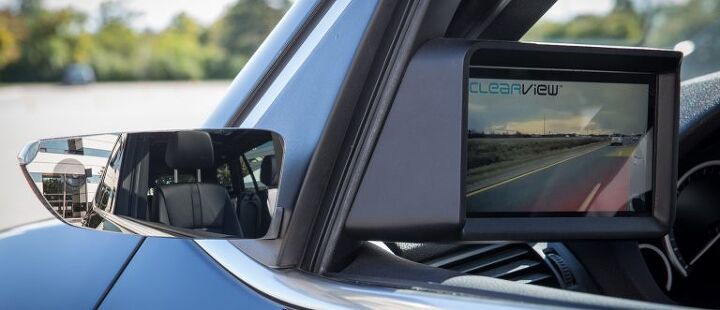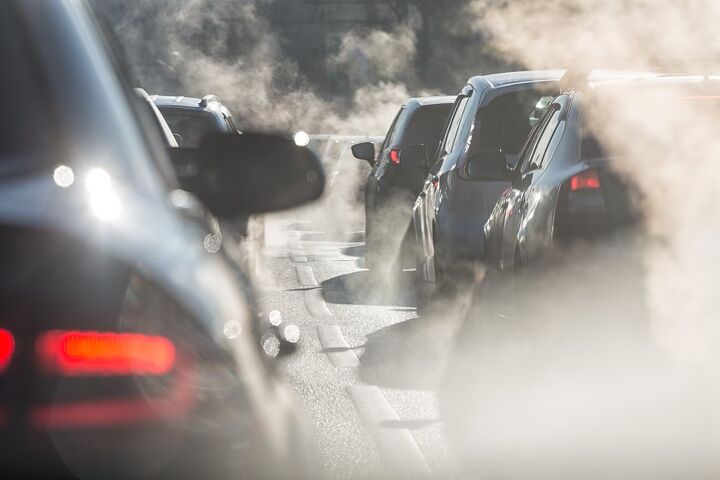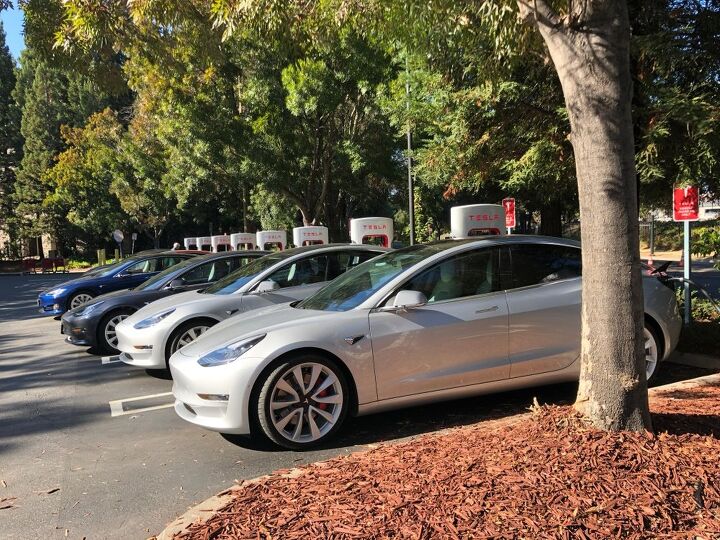#regulation
Ahead to the Past: DeLorean Production Could Start Next Year
DeLorean’s plan to produce updated versions of its only model has been delayed due to the National Highway Traffic Safety Administration (NHTSA) dragging its feet on the Low Volume Motor Vehicle Manufacturers Act. The car was supposed to be here as a turnkey classic years ago, but the regulator failed to act after the 2016 election. The NHTSA doesn’t currently have an administrator, and the acting administrator would not sign off on the regulations. Vintage automobiles probably aren’t very important to an agency that’s also trying to manage autonomous and electric vehicles.
However, the Low Volume Motor Vehicle Manufacturers Act was supposed to be the keystone in allowing DeLorean and the like to assemble new cars. Noticing three years had passed with no progress, the Specialty Equipment Market Association (SEMA) decided to sue the NHTSA last fall. James Espey, vice president of DeLorean Motor Company, has taken this as a good sign — and he believes the company could start production in 2021.
Fast Is Past: German Auto Club No Longer Opposes Speed-limited Autobahn
The German equivalent of AAA, Allgemeiner Deutscher Automobil-Club (ADAC), has long been a proponent of a limitless Autobahn. However, the group recently walked back its zeal for the cause amid demands from environmental groups to enact speed limits in a bid to curb emissions.
While most of the Autobahn has the same posted limits you’d find on most North American highways, there are plenty of sections where people can drop the hammer and go as fast as conditions permit. Safety advocates have often raised an eyebrow, encouraging regulators to limit additional sections of the roadway, but universal limits have always been a bridge too far. Now that environmental groups have joined the fray, the issue has garnered a lot more attention.
It's a Slow Road to Rear-view Video, but Magna Says It's Ready
Even though automakers routinely preview concept and prototype vehicles with camera mounts replacing traditional side and rear-view mirrors, you’ll have to wait a while before the technology makes its way to production vehicles. While Japan thinks ditching mirrors for a digital display is sugoi (Japanese for hunky-dory), other nations have maintained some amount of trepidation in embracing the technology.
For our purposes, both Canada and the United States have examined the matter, yet neither feels ready to make any industry-altering decisions. Supplier Magna International says that’s okay — it’ll be ready to hook up North America with the applicable hardware when the time comes. Plenty of downsides can be found in swapping out traditional mirrors, offsetting some of the benefits, and lawmakers need to figure out how to manage that when it comes time to redefine automotive regulations.
Daimler Investors Seeking 900 Million in Diesel Damages
Over 200 investors are seeking 900 million euros in damages over claims that Mercedes-Benz parent Daimler failed to disclose the use of emissions cheating devices similar to those that got Volkswagen into trouble back in 2015. This isn’t the first time the issue has come up. German prosecutors claimed nearly 690,000 Mercedes-Benz vehicles came equipped with rigged exhaust gas after-treatment systems and Daimler was slammed with a €870 million ($960 million) fine over the negligent violation of European clean air standards in the fall.
Those who invested into the firm are hoping to recoup losses from the scandal after the automaker’s share price shat the bed. Lawyers repressing the investors are seeking compensation after Daimler’s stock fell from €90 a share fall to approximately €60 in 2018, once German regulators began formally accusing the automaker of trying to circumvent emission rules.
U.S. Fuel Rollback Earns Pushback From Scientific Advisory Board
The Environmental Protection Agency’s (EPA) Scientific Advisory Board (SAB) is once again applying pressure on the Trump administration’s proposed fuel economy rollback. Similar to the complaints issued by a coalition of scientists back in March of 2018, the board expressed concerns that significant weaknesses exist in the analysis underpinning the plan that should be addressed before any rules are made final. A draft report was circulated earlier in the week, with the SAB scheduling a public meeting meeting on January 17th.
“[The] EPA always appreciates and respects the work and advice of the SAB,” the U.S. regulatory agency said in a statement. “When implemented, the [rollback] will benefit all Americans by improving the U.S. fleet’s fuel economy, reducing air pollution, and making new vehicles more affordable for all Americans.”
French Tax on Inefficient Vehicles Riles Automakers
Next year, the European Union plans to adopt aggressive new rules that would see automakers fined if their total annual vehicle sales exceed predetermined carbon limits. Obviously automakers aren’t thrilled with the new fines and higher emission mandates, but France is facing additional criticism for its decision to take things a step further.
France’s parliament has adopted a new law penalizing cars that emit carbon dioxide above a certain threshold while still adhering to EU regulations. Vehicles failing to adhere to the French rules will be subject to a 20,000 euros ($22,240) tax in 2020, nearly twice the current fine. Meanwhile, the country is mulling the possibility of culling EV incentives — an odd move, considering its aim to transition its populace to zero-emission vehicles.
GM Still Pushing Cars Without Steering Wheels, Talking With NHTSA
Remember when General Motors talked about delivering an autonomous vehicle, sans steering wheel or pedals, and how the Department of Transportation said Federal Motor Vehicle Safety Standards basically made it impossible? Well, GM hasn’t given up the fight to disassociate drivers from driving.
The U.S. National Highway Traffic Safety Administration has started talks with GM over the automaker’s petition to deploy a limited number of self-driving vehicles on American roads last Friday. Acting NHTSA Administrator James Owens told Reuters that the petition (issued in 2018) is currently under review.
“I expect we’re going to be able to move forward with these petitions soon — as soon as we can,” Owens said, suggesting a final decision would be made in 2020. “This will be a big deal because this will be the first such action that will be taken.”
Mercedes to Pay $13 Million U.S. Regulatory Fine As NHTSA Keeps Watch
Mercedes Benz will pay a $13 million penalty to U.S. safety regulators over a failure to report a string of necessary recalls. A signed settlement on file with the National Highway Traffic Safety Administration (NHTSA) indicates that Daimler’s American arm could be on the hook for up to $20 million in regulatory fines.
The remaining $7 million is in the hands of the NHTSA, which has to eventually decide whether or not Mercedes expedited its recall notices or improved upon its recall processes. The automaker will be audited by the regulatory agency until 2022 to help make those assessments.
Can EVs Go the Distance? EU Approves 3 Billion Battery Development Fund
The European Union has approved a 3.2 billion-euro fund to promote the research and development of battery technology, with cash pouring in from Belgium, Finland, France, Germany, Italy, Poland and Sweden. While Brussels has been on an electrification push ever since Europe fell out of love with diesel, now may not be the best time to double down on EVs.
We recently covered China’s ailing automotive market, noting the poor performance of new energy vehicles (which fell by at least 40 percent vs the previous November). We’ve also covered a survey showing how eager the nation’s consumer base appeared to be to purchase them, with both writer and readership wondering how reliable those figures actually were. Our collective dubiousness appears to have been valid. Despite being the top region for EV sales, new data from Bernstein Research claims about 70 percent of the 1.2 million electric or gasoline-electric hybrid models sold in China over the past year went directly to government or corporate fleets. When the government started removing subsidies, sales plummeted with little private interest to soften the impact.
Europe may be on a vaguely similar path. While worldwide EV sales are up about 13 percent through October, sales in North America are down 2 percent (at 301,000 deliveries), with Europe rising 37 percent (to 395,000). That’s partially due to European cities being closer together (with more charging points between them), though most EU member states also offer various electric vehicle purchasing incentives and tax exemptions. They’ve likewise adopted stricter environmental rules that make EVs more appetizing to own in the future.
Vehicle Content Rules Still Slowing North American Trade Deal
Replacing the North American Free Trade Agreement (NAFTA) has proven difficult for the Trump administration. Trade negotiations have progressed slowly, with Mexico, Canada, and the United States rarely seeing eye-to-eye on most issues. Some of the biggest problems have dealt with content requirements.
The latest hangup stems from a rule requiring 70 percent of the steel and aluminum found in North American vehicles to come from the same continent in order to ensure a duty-free existence. Mexico isn’t keen on the proposal — as it sources a large amount of metal from Brazil, Japan and Germany. Meanwhile, the United States is attempting to use the inclusion to appease the United Steelworkers union and keep labor-focused jobs in the country.
Uber Loses License in London, Deemed Unsafe by Regulator
Transportation for London (TfL) announced it has informed Uber that it will not be reissued a license to operate in the UK capitol, citing concerns over customer safety. TfL had previously declined to renew the ride-hailing business’ private hire operator license, which expired on September 30th, saying it was unsatisfied with the number of drivers it found “fit and proper to hold a licence.” Then it changed its mind, offering a two-month extension.
Now it’s claiming that at least 14,000 Uber trips taken within the city included drivers linked, via their app profiles, to cars they were not legally registered to drive. Having done an impromptu survey of his own (done as unscientifically as possible by just asking drivers if they owned the vehicle), your author found the number of “rogue” Uber drivers in New York City to be about one in five.
While easily framed as a gotcha moment, that ratio isn’t really any different from what I’ve experienced with NYC’s sanctioned yellow (or green) cabs. But that doesn’t exactly make it a non-issue either — just more of the same.
Regulators, Mount Up: NTSB Presses NHTSA for Better Self-driving Safety
While the National Transportation Safety Board’s (NTSB) job isn’t to establish new regulations, it is obligated to enforce the country’s Federal Motor Vehicle Safety Standards while conducting crash investigations and making recommendations to other agencies on ways to improve vehicular safety.
Lately, that job involves telling the National Highway Traffic Safety Administration (NHTSA), an agency that does write those rules, to step up its game on autonomous vehicles.
Last week, the NTSB held a board meeting in Washington D.C. to determine the probable cause of a fatal collision between a self-driving Uber prototype and a pedestrian in March of 2018. While Uber took plenty of heat, the NHTSA also came under fire for prioritizing the advancement of advanced driving technologies over public safety.
A New Twist: California Bans Gov. Purchasing of Most Auto Brands
Just when you thought the gas war couldn’t get any wilder, California has announced it will ban the purchase of any vehicle manufactured by a company that doesn’t explicitly recognize the state’s ability to set its own emission regulations.
Starting in January, California plans to purchase any-and-all government fleet vehicles from only Ford, Honda, BMW, and Volkswagen Group — companies that backed a voluntary agreement to adhere to the state’s emission rules over the summer. The pact is now the subject of a federal antitrust probe.
Any automaker publicly supporting a single national standard (or having recently expressed support for the Trump administration’s fuel rollback proposal) will be deemed ineligible for fleet consideration. “Car makers that have chosen to be on the wrong side of history will be on the losing end of California’s buying power,” California Governor Gavin Newsom said in a statement.
Report: Trump Administration Seeks to Soften Fuel Economy Rollback
One of the issues underpinning the gas war has been an inability for either side to compromise. Initially, it was the current administration complaining about California wanting special treatment. But the coastal state was quick to return fire, claiming that the White House never offered a valid compromise.
Eventually California extended an olive branch by suggesting it would postpone existing fuel economy mandates by one year, while attempting to lock automakers in via written commitments. But federal regulators said a singular national standard was needed, suggesting California had overstepped its authority by trying to rope in manufacturers.
However, EPA Administrator Andrew Wheeler came back this fall with claims of a revised plan that could actually be more stringent than originally presumed. While still a rollback, the new draft was said to close several loopholes the industry could use to continue their polluting ways. “In some of the out years, we’re actually more restrictive on CO2 emissions than the Obama proposal was,” Wheeler said.
New reports now suggest the EPA’s words are more than just noise.
EPA Chief Hints Vehicle Emission Rules Could Tighten Under Trump - With a Twist
It’s certainly taking this fuel economy rollback proposal we’ve heard so much about a long time to evolve into its final form. Unfortunately, Environmental Protection Agency Administrator Andrew Wheeler has indicated more changes could be needed before a final draft can be released. However, in a bit of a twist, he’s now claiming the proposal will actually be more rigorous than preexisting mandates. Kind of.
“In some of the out years, we’re actually more restrictive on CO2 emissions than the Obama proposal was,” Wheeler told a crowd at the Detroit Economic Club this week.






























Recent Comments